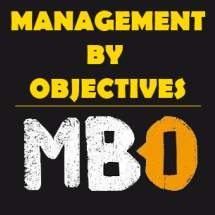Management Audit | Purpose | Scope | Advantages | Disadvantages
Table of Contents
What is Management Audit?
Management audit is a systematic evaluation of the functioning performance and effectiveness of management of an organization. It a thorough-going, critical and constructive review of the quality of management. It is generally conducted at the instance of the management.

Definition of Management Audit
British Institute of Management defines Management Audit as,
“a systematic, comprehensive, critical appraisal of the organization, structure, management practices and methods conducted normally by external independent persons. Its primary objective is to motivate management to initiate necessary action that will bring great efficiency and profitability to the organization”
Purpose of Management Audit
The purpose of management audit is to assess whether the integrated management system which are required to fulfill the agreed and legal obligations of the company to its customers and community are being effectively implemented and the true and fair presentation of results of such an examination. It also aims at knowing
1. the efficiency with which all aspects or process of management are being carried out with a view to ensure management that it is getting the assigned job properly done,
2. the control systems introduced are functioning properly, and
3. the management itself is discharging its functions properly. It tells the management the areas where these are to be strengthened.
Scope of Management Audit
The scope of management audit is very wide. Jakson Martindell of the American Institute of Management identified ten areas of management audit. They are:
- Organizational Structure,
- Appraisal of the Executives,
- Functioning of the Board,
- Soundness of Earnings,
- Economic Functioning,
- Service to Shareholders,
- R&D,
- Fiscal Policy,
- Efficiency in Production, and
- Sales.
Advantages of Management Audit
The main advantages of management audit are as follows:
1 It takes a total view of the management process which helps to identify present and potential deficiencies in management. This will enable the management to make major structural improvements.
2. It helps to improve communication system by keeping the whole management team under constant review.
3 It facilitates the improvement of control system also.
4. Constant review of various aspects of organization helps to improve performance and thereby to protect the organization from deceits.
5. It provides opportunities for continuous innovations based on the environmental changes.
6. It helps to improve co-ordination and to evaluate the performance of control mechanisms.
Disadvantages of Management Audit
Management audit suffers from the following disadvantages:
1. Management Audit does not have a well defined scope. There are no standard techniques of management audit.
2. Management Audit may create complexity in authority-responsibility relationships.
3. Management may object vehemently the critical appraisal of its policies and actions.



